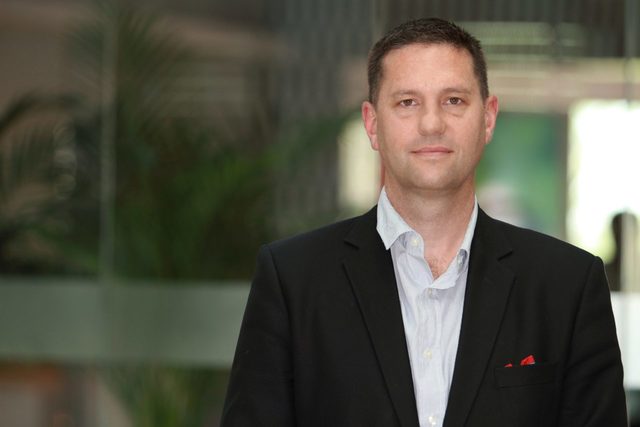How the Swedish telecommunications company reduced its reliance on expats in Sub-Saharan Africa
Ericsson once had a much higher reliance on foreign resources in the form of expats as well as project resources, in its Africa operations, but localisation is a challenge that has been addressed quite significantly with Blair Mackenzie in the organisation. Due to lags in new technology uptake, Africa usually also lags in expertise on new and emerging technologies, making it difficult to find local expertise. But Blair, who is passionate about localisation, spent three-and-a-half years from 2009 to 2012 as the HR director for West Africa, working with the business and managed to reduce the number of expats in Nigeria from around 70 to as few as 12.
The major challenge was to ensure proactive investment in acquiring competence and development for the mid to long term. He says that, very often, Africa is a step or two behind the trends in Europe, America and North-East Asia.
“Our customers want to implement the latest technologies but often we didn’t have the local ability and had to rely on resources from elsewhere,“ says Mackenzie
“As a tech company - Ericsson is now the fifth largest software company in the world and the second largest distributor of media content in Europe – we need to be at the forefront of new technology developments and have the capability to help our African customers make technology choices and implement new technologies.”
The company executed a localisation strategy that paired future-focused learning with giving locals an opportunity to go on exchange programmes to countries outside the region, where they worked for three-to-six months at a time to pick up practical knowledge and skills in the latest technologies. In addition, Ericsson focused on creating internal mobility within sub-Saharan Africa to enable knowledge sharing and skills transfer.
Now responsible for the HR Function across 29 countries in sub-Saharan Africa, Mackenzie has, in the 8 years he has been with Ericsson, seen the reliance on expats drop from 350 to about 120 in the region, a 65% reduction in Expats, directly translating into more opportunities for local employees.
Ericsson Global Academy
It’s a challenge that the company faces continually, but there have been many strides made towards reducing the foreign complement in the countries in which the company operates.
There is the Global Ericsson Academy, for example, which is a world-class learning facility that empowers employees to take responsibility for driving their own professional development. The academy has implemented online learning opportunities as an excellent complement to formal classroom training and informal learning courses, while also connecting people with the latest ICT knowledge in an engaging manner.
As role models in developing their own competence and learning, leaders get involved in a high-impact learning culture, participating in their employees’ competence planning and development as well.
[chro-cta slug=mondel-z-international-s-cebile-xulu-at-hr-indaba-2020-on-14-15-october-2020]
Migration to central HR system
The company also went through a big transformation a couple of years back where it globalised the HR function, reducing its front-end HR in the region quite significantly. This was achieved by introducing common global processes and tools, manager and employee self-service platforms, and centralising transactional work into global shared-services centres.
Says Mackenzie: “Previously, HR was completely localised, so everywhere you went there was a different HR structure, policies, processes, tools etc. So we streamlined that and offshored a lot of that work to India, the Philippines and Spain. Around 70% of the HR work is done offshore now. That has created a lot more time to engage more strategically with the business on the front end. We have gone from having about 75 HR employees in the region to 25 now, backed up by our colleagues in the off-shore centres.”
Similarly, from a business perspective, Ericsson is also doing a lot of work remotely nowadays. They have big global service centres in China, Mexico, Romania and India, where they are able to do work - whether it be network monitoring, dispatch of resources, network optimisation or systems integration, among other things – remotely. It has been so effective that the company now delivers more than 50% of its deliverables to customers in Africa from offshore.
“I don’t have a classical HR background, but I’ve surrounded myself with experts in the specialist HR disciple areas. I don’t need to be an expert myself, says Blair “That said, as in any position of leadership in business, you live and die by the effectiveness of your function. I would not have the credibility to sit with the leadership team and talk business if the basics of HR were not working. That never changes. That is what buys you the credibility to engage on the strategic issues.












